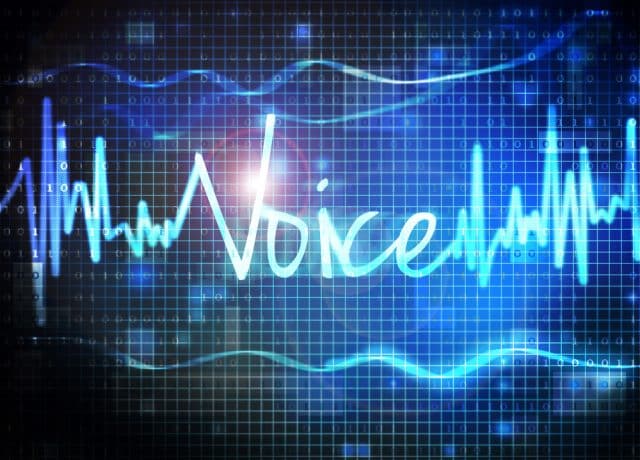Understanding how all businesses can benefit from voice analytics

Voice and speech analytics refers to the process of analyzing recorded conversations such as phone calls to gain insights into customer behavior and call quality, often utilizing AI by employing a Natural Language Processing (NLP) engine that uses context and emotional clues to determine more accurately what is being said.
In utilizing voice analytics solutions, businesses are now able to spot keywords and phrases, as well as detect sentiment and emotional context using pitch, pacing, and language clues to observe whether a conversation is going in the right direction or if it’s going downhill. By evaluating the tone of a customer’s voice, businesses can assess whether their customers are satisfied, annoyed, or upset. 82 percent of customers now consider no longer engaging with a business if they feel they have had a poor customer experience, so understanding potential issues before they arise may be the single most valuable thing a business can do to retain customers.
Capitalizing on business intelligence
Businesses can obtain a wealth of business intelligence from their phone interactions, across their entire business. Typically, analytics have only been used to provide visibility into contact center interactions, predominantly to measure and improve the quality of customer service, with research indicating a reduction in ticket resolution time by over 40 percent.
But customer service is just one part of the overall customer experience delivery, which is made up of every customer touchpoint across their business. Individuals across several business teams often make and receive a high number of customer calls -- their interactions could have a profound impact on a company’s overall customer experience, which is why it is estimated that around 75 percent of all business calls will be recorded by 2025.
With voice analytics, companies can quickly and easily unlock insights from every customer discussion. Voice analytics provide invaluable business intelligence insight for businesses to make better business decisions from every sales, service, or marketing conversation.
In providing a data-driven method of collaborative performance management, businesses can bolster their strategies with a variety of benefits.
Improving products and services
Formerly reliant on market research, focus groups, and post-sale surveys, the use of voice analytics opens up an almost instantaneous way for product developers and marketers to gather insights on discussions related to products, services, price, quality and more. Learning from your customers in this manner will allow you to identify their core wants and needs easily. Better still, it is proven that when they aren’t being ‘asked’ for feedback, but instead are giving unfiltered thoughts and emotion, the data is far more accurate and useful.
Voice analytics can support product development by not only combining the ability to track keywords but also measuring them against the customers’ emotional states. Identifying repeated terms on negative customer service queries is easier, alongside comparing which product features led to an improvement in the satisfaction of a customer during an outbound sales call. Businesses can thereby identify specific reasons they might be losing customers and rectify issues directly, right down to highlighting any key elements that cause customer dissatisfaction and use this knowledge to improve their products.
Supporting staff development
Most teams will have to deal with making and receiving high volumes of calls daily. This provides a voice analytics system with a large amount of data perfect for analysis. Monitoring these calls is important to ensure that team members across the business can improve, thus reducing inefficiency and promoting development within the business. However, manually analyzing this call data is time-consuming for managers, with often only a tiny fraction of calls getting listened to.
Voice analytics enable immediate access to detailed call data without having to listen to every single call. Instead, AI-powered call recording systems transcribe all calls for you, with inbuilt dashboards helping ensure employees are following processes. By also analyzing both the employees’ and customers’ language and tone for sentiment, every call can be automatically scored against multiple criteria. As a result, businesses can improve overall performance with additional and specifically tailored training to plug the skills and knowledge gaps identified.
Monitoring quality assurance
By assessing all calls with voice analytics, managers can keep a close eye on all interactions with your customers, reducing operational and performance issues whilst improving the overall outcome of initial calls. Key phrase analysis can measure the script adherence of either sales or support agents, making sure they are representing your brand most effectively.
Identifying the messaging and conversation techniques that bring results and produce high levels of customer satisfaction is easily done, with voice analytics structuring call data to suit your needs. Managers can maintain vigilance for specific terms or metrics, helping your customer service team “get on the same page” as customers, which ultimately increases first call resolution rates and reduces overall call volume.
Identifying potential risks in regulation
With voice analytics, employees are provided with real-time data to make sure they stay on track and avoid saying or asking anything that would be considered outside the scope of regulatory compliance. Script deviations, data leakage, and factors that increase business risks can be easily identified, allowing businesses to solve problems before they become serious.
A good example of this might be any business that is offering financial advice or selling any kind of financial products over the phone. These businesses have legal obligations to explain products and services in a certain way, to obtain customer authority to make trades on their behalf, or to provide legal disclosures or disclaimers.
Voice analytics AI tools can even enable automated redaction of sensitive payment information to maintain a focus on standards including PCI-DSS and GDPR for enhanced customer data security. By preventing non-compliance, businesses can avoid fines that may come with failure to adhere to industry regulations.
Reducing business costs through focused efforts
A practical benefit of adopting voice analytics is that it aids in reducing costs. By quickly identifying calls that need priority attention, businesses save time that would otherwise be wasted searching through volumes of interactions. Any data collected can be utilized when it comes to refining and perfecting services, enabling any business to refocus its employees to where they would be needed more.
Converting speech into raw data and organizing and analyzing with voice analytics saves time and effort, revealing critical insights that would be almost impossible to gain otherwise. In employing voice analytics, businesses have seen cost savings of up to 30 percent and increased customer satisfaction by 10 percent according to research by McKinsey. The benefits to businesses improving productivity and service efficiency are clear, thus embracing the power of a voice analytics solution should be considered the next step for businesses wishing to enhance their customer experience and sales capabilities.
Image credit: nevarpp/depositphotos.com

James Lockhart is Head of Product Marketing, TelcoSwitch.
